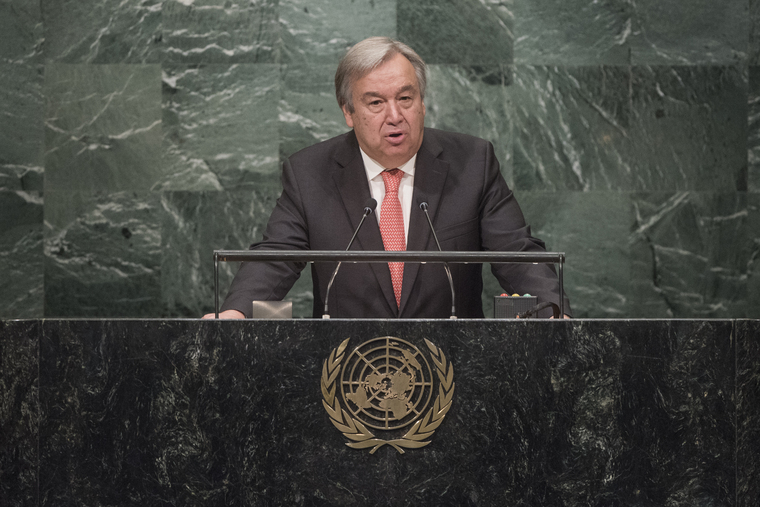
On 13 October, the General Assembly appointed by acclamation the former Prime Minister of Portugal, António Guterres, as the next United Nations Secretary-General, to succeed Ban Ki-moon when he steps down on 31 December. The GA adopted the consensus resolution put forward by its President, Peter Thomson. Earlier the UN Security Council recommended Mr. Guterres’ name to UNGA as its nominee for UN Secretary-General for a five-year period, ending 31 December 2021.
Mr. Guterres, aged 67, was Prime Minister of Portugal from 1995 to 2002, and the UN High Commissioner for Refugees from June 2005 to December 2015. He will become the world’s top diplomat on 1 January 2017, and hold that post for the next five years.
Mr. Guterres thanked the member States of the General Assembly for appointing him as the next Secretary-General, as well as for the transparent and open selection process they undertook. He also underlined that alleviating the suffering of the vulnerable people, in particular the refugees and those in conflict zones, and gender equality would remain key priorities for him during his tenure. The Secretary-General-designate Guterres also reiterated his belief in the values of peace, justice, human dignity, tolerance and solidarity, as well as his belief that diversity is a “tremendous asset” and not a threat. He also applauded the work of the current Secretary-General Ban Ki-moon and said that he would try his utmost to honour Mr. Ban’s legacy.
The Assembly’s resolution also welcomed the historic process Member States set in motion late last year: the selection of a new United Nations Secretary-General, traditionally decided behind closed-doors by a few powerful countries, has for the first time in history, involved public discussions with each candidate campaigning for the world’s top diplomatic post. The selection process included public hearings with the General Assembly where candidates presented their vision and responded to the questions fielded by the Member States. These informal hearings were also televised and webcast.
The process started off with a joint call from the Presidents of the General Assembly and the Security Council formally soliciting candidates and from the outset, acknowledged the importance of geographic and gender balance in senior posts. The process specifically sought out candidates who embody a firm commitment to the purposes and principles of the [UN] Charter; who exemplify the highest standards of efficiency, competence, and integrity; and who have proven leadership and managerial abilities, extensive experience in international relations, and strong diplomatic, communication and multilingual skills.
From PPD Permanent Observer at the UN, New York, 15 October 2016

Leave a Reply
You must be logged in to post a comment.